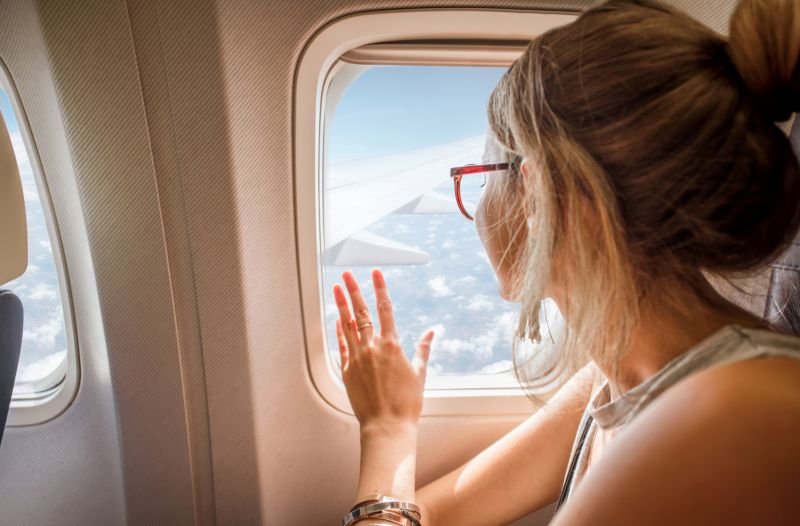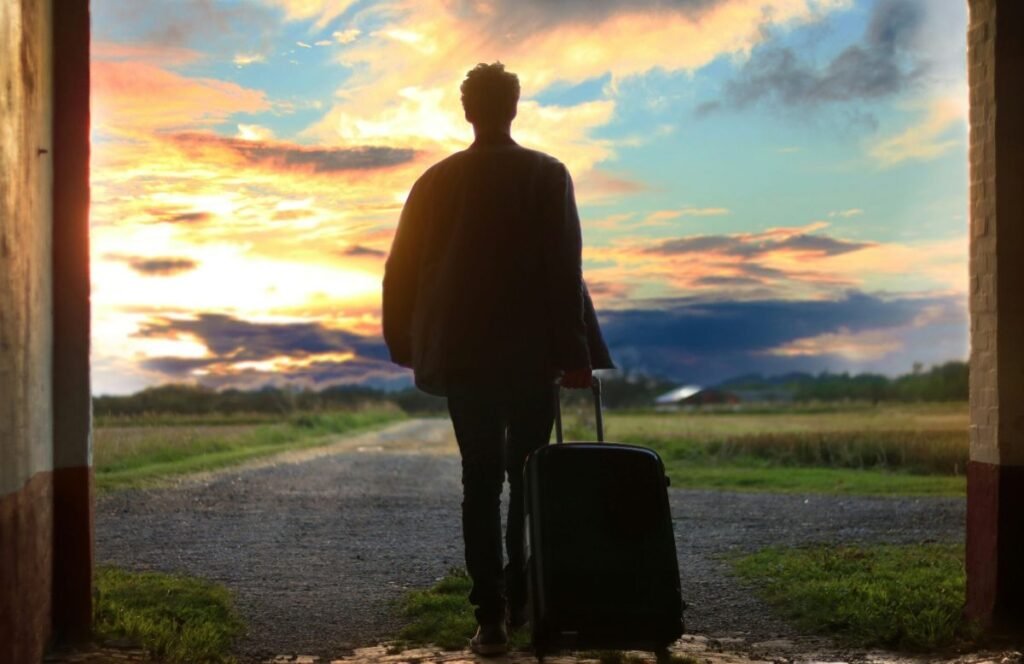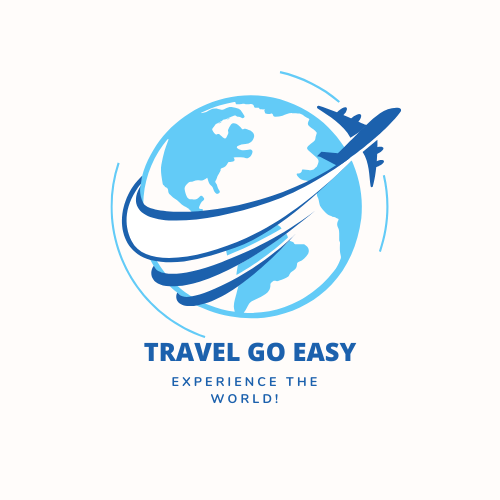Physical Address
304 North Cardinal St.
Dorchester Center, MA 02124


Why We Struggle Outside Our Comfort Zone
Discover the psychological barriers that prevent solo travel and learn proven strategies to transform anxiety into adventure confidence. Unlock the secrets to fearless exploration with expert insights.
Have you ever felt your pulse quicken at the thought of exploring an unfamiliar city on your own? That moment when excitement and anxiety battle it out in your mind, and your rational thoughts clash with deep-seated fears about venturing beyond familiar territories? You’re not alone in this internal battle – millions of potential adventurers face the same psychological barriers, turning dream destinations into sources of stress rather than excitement.
The magnetic pull of solo adventure taps into something primal within us, yet invisible chains of worry bind us to familiar routines and environments. Understanding these psychological mechanisms is not just an academic curiosity; it is the key to unlocking the extraordinary experiences that await us beyond the boundaries of our comfort zones.
Modern neuroscience provides fascinating insights into why our brains resist adventure, despite our hearts craving exploration. The ancient survival mechanisms that once protected our ancestors from real dangers now create imaginary obstacles that hinder personal growth and prevent us from having meaningful travel experiences.
Our comfort zones act as invisible fortresses, offering psychological security but also limiting our potential for growth and extraordinary experiences. These mental boundaries are not arbitrary; they are deeply rooted in evolutionary biology and reinforced by modern social conditioning.
The neuroscience of comfort zone resistance reveals how our brains interpret unfamiliar situations as potential threats. The amygdala, the brain’s alarm system, evolved to protect us from sabre-toothed tigers and hostile tribes. Unfortunately, however, it cannot distinguish between genuine danger and the mild discomfort of, for example, ordering food in a foreign language.
When we contemplate solo travel, multiple regions of the brain activate simultaneously. The prefrontal cortex analyses logistics and potential challenges, while the amygdala floods the body with stress hormones. This neurological tug-of-war gives rise to the familiar sensation of yearning for adventure yet being paralysed by imagined catastrophes.
Social conditioning reinforces attachment to one’s comfort zone through subtle yet consistent messaging about safety, normality, and appropriate behaviour. From childhood, we are constantly reinforced to stay close to home, travel with others and avoid unnecessary risks. These messages become internalised beliefs that masquerade as rational decision-making.
Cultural narratives about solo travel can vary dramatically between societies, but most tend to emphasise the potential dangers rather than the transformative benefits. The news media sensationalises travel mishaps while ignoring the millions of successful solo adventures that take place every year. This selective reporting creates a distorted perception of risk that prevents people from venturing outside of their comfort zones.
The comfort zone paradox is a fascinating psychological phenomenon in which we simultaneously crave growth and resist change. Personal development requires us to experience discomfort, but our brains interpret this as a danger signal. This creates an internal conflict between our desire to grow and our survival instincts.
Maria, a graphic designer from Toronto, describes her pre-travel anxiety: ‘I spent months researching every possible thing that could go wrong on my solo trip to Thailand. Logically, I knew the statistics showed solo travel was safe, but emotionally, I created elaborate disaster scenarios. The irony? My actual trip turned out to be the most confidence-building experience of my life.’
Cognitive biases compound comfort zone resistance through systematic thinking errors that overestimate risks and underestimate our adaptive capabilities:
Availability Heuristic Effects
Negativity Bias Magnification
Control Illusion Dependency
Breaking comfort zone patterns requires understanding that discomfort signals growth rather than danger. The goal isn’t eliminating anxiety but reframing it as adventure fuel rather than warning signals.
Graduated exposure therapy principles apply perfectly to solo travel anxiety. Rather than jumping directly into extreme adventures, strategic comfort zone expansion builds confidence through manageable challenges:
Progressive Challenge Scaling
Success reinforcement cycles create positive feedback loops that gradually change how we relate to discomfort. Each time we successfully navigate mild anxiety, we build evidence that we are more capable than our fears suggest.
James, a teacher from Manchester, discovered the power of graduated exposure. He said, “I started with solo day trips to nearby cities, then weekend adventures, and finally international destinations. Each successful trip proved that my anxiety was worse than the reality of the situation. Now, I actively seek out situations that once terrified me, because I have learned that they lead to the most meaningful experiences.”
Mindset reframing techniques transform anxiety symptoms into indicators of excitement. Research shows that the physiological arousal experienced during anxiety and excitement is virtually identical; the difference lies in how it is interpreted cognitively.
Anxiety-to-Excitement Translation:
Expanding our comfort zone is one of the most profound benefits of solo travel and represents an evolution of our identity. Successfully navigating previously feared situations updates our self-concept and expands our sense of personal capability.
Someone who has returned from their first solo adventure will have different beliefs about their resilience, adaptability and competence. These updated self-perceptions influence future decision-making, creating an upward spiral of confidence and capability.
Getting lost is one of the most primal human fears, triggering deep evolutionary anxieties about survival and safety. This fear intensifies dramatically when we travel alone into unfamiliar territories where language barriers make navigation more difficult.
The psychology of spatial anxiety is connected to the fundamental human need for orientation and control. Ancestors who were unable to find their way home did not survive to pass on their genes. This survival mechanism is now activated inappropriately in modern travel contexts, where becoming temporarily disorientated rarely poses a real danger.
Although modern technology has revolutionised navigation, many travellers still experience intense anxiety about getting lost. This discrepancy between objective safety and subjective fear highlights the profound influence of spatial anxieties on our travel decisions.
The digital navigation revolution has provided solo travellers with an unprecedented level of security, yet many people remain unaware of the available tools or are uncertain about their reliability.
Smartphone Navigation Capabilities
Advanced Navigation Tools
Cultural navigation support systems vary dramatically between destinations. However, they often provide more assistance than anxious travellers expect.
Local Support Networks
Language bridge solutions address communication barriers that compound navigation anxiety:
Translation Technology
Sarah, an accountant from Sydney, overcame her fear of getting lost in Tokyo through systematic preparation. ‘I was terrified of getting lost in Tokyo because I don’t speak Japanese and the writing system seemed completely alien. I spent time learning how to use navigation apps, downloaded offline maps and practised basic phrases. Once I arrived, I found that the city had excellent English signage and incredibly helpful residents. My preparation gave me confidence, but the reality was much easier than I expected.’
Strategic preparation techniques can transform the abstract fear of navigation into a concrete, manageable challenge.
Pre-departure Navigation Planning
On-location Navigation Strategies
Navigation anxiety often masks deeper fears about control and independence. The fear of getting lost becomes a metaphor for losing control over our circumstances, triggering anxiety responses that are disproportionate to the actual risks involved.
Reframing lost experiences as adventure opportunities rather than disasters transforms the entire narrative around navigation challenges.
Positive Lost Experience Outcomes
Emergency navigation protocols provide peace of mind while rarely requiring actual use:
Safety Backup Systems
Marcus, a photographer from Berlin, attributes his best travel discoveries to navigational errors: ‘Getting “magnificently lost” in the back streets of Prague led me to a hidden medieval courtyard that became the centrepiece of my photo collection,’ he says. I learned that navigation mistakes often create better stories than perfect planning. Now, I build extra time into my schedule specifically for unexpected discoveries.”
Navigating urban environments versus wilderness requires different approaches to managing anxiety and different preparation strategies.
Urban Navigation Advantages
Wilderness Navigation Considerations
Different approaches to managing anxiety and different preparation strategies are required when navigating urban environments versus wilderness.
Confidence Building Exercises
The fear of getting lost is often worse than the experience itself. Most situations where someone is ‘lost’ resolve quickly with minimal consequences, and the confidence gained from successfully navigating your way out of them builds lasting self-reliance and travel capability.
The spectre of inadequate preparation haunts potential solo travellers, conjuring up images of forgotten essentials, insufficient research and catastrophic oversights. This anxiety reflects deeper concerns about our competence and self-reliance, and our ability to handle unexpected challenges without the support of a companion.
Preparation perfectionism can become its own obstacle, preventing adventure through endless research and setting impossible standards for readiness. This creates analysis paralysis, which keeps prospective travellers anchored to their computers rather than exploring destinations.
To understand the difference between preparation and over-preparation, it is necessary to distinguish between essential readiness and an anxiety-driven obsession with controlling uncontrollable variables.
Essential Preparation Categories
Over-Preparation Warning Signs
The preparation anxiety cycle creates self-reinforcing loops, whereby new concerns arising from research demand further research. This process can continue indefinitely, turning the excitement of planning a trip into the stress of a chore.
Lisa, a marketing manager from Chicago, describes how her approach to preparation evolved: ‘For my first solo trip, I spent three months researching every detail, packing enough supplies for a month-long expedition for a five-day city break. I realised that most of my preparation anxiety stemmed from imaginary problems, so now I focus on the essentials and trust that anything else can be handled locally if needed.”
Destination-specific preparation strategies provide structured approaches to readiness without falling into perfectionist traps:
Documentation and Legal Requirements
Financial Preparation Systems
Health and Safety Foundations
Technology and Communication Setup
The diminishing returns of excessive preparation become evident when research time exceeds actual travel duration. Healthy preparation involves accepting uncertainty as inherent in adventure travel rather than eliminable through additional research.
Practical preparation frameworks provide systematic approaches without encouraging obsessive behavior:
The 80/20 Preparation Rule
Local resource leveraging often proves more effective than excessive advance preparation:
On-Location Problem-Solving Resources
Equipment and packing philosophy balances essential items with weight and complexity management:
Essential Item Categories
Non-Essential Over-Packing Temptations
David, an engineer from Vancouver, developed a systematic approach to preparation: ‘I create destination-specific checklists, focusing on what I absolutely need versus what I think I might want,’ he explained. This keeps the preparation process focused and prevents the anxiety of researching every possible scenario. I’ve learned that the fear of being unprepared is usually worse than dealing with minor inconveniences.’
Preparation confidence building involves recognizing your adaptive capabilities and past problem-solving successes:
Capability Confidence Techniques
Information versus experience balance requires accepting that theoretical preparation has limitations compared to actual situational adaptation:
Experience-Based Learning Advantages
Preparation anxiety often reflects control desires in inherently unpredictable situations. Adventure travel requires accepting uncertainty as excitement rather than threat, viewing challenges as growth opportunities rather than preparation failures.
Graduated preparation approaches build confidence through manageable challenge escalation:
Progressive Preparation Development
The goal of preparation isn’t eliminating all possible challenges but ensuring you have essential tools and knowledge to handle likely scenarios while maintaining confidence in your adaptive abilities for unexpected situations.
The discomfort and anxiety experienced by many travellers extends beyond physical concerns into emotional and social territories that they find more challenging than logistical obstacles. The prospect of navigating unfamiliar social situations, resolving cultural misunderstandings and managing emotional responses without the support of a companion can create significant psychological barriers.
The discomfort paradox is evident in our simultaneous craving for authentic experiences and desire to avoid awkward situations. While meaningful travel inevitably involves situations that push personal boundaries, our comfort-seeking nature resists these growth opportunities.
Social eating anxiety represents one of the most common discomfort fears, particularly for travelers accustomed to sharing meals with others:
Restaurant dining strategies address psychological barriers while opening doors to authentic culinary experiences:
Solo-Friendly Dining Approaches
Engagement activity integration creates comfortable focal points during solo dining:
Productive Solo Dining Activities
Cultural observation opportunities can transform the experience of eating alone from an awkward necessity into an anthropological adventure.
Social Environment Appreciation
Jennifer, a teacher from Dublin, turned her dining anxiety into an opportunity for cultural exploration. ‘I used to order room service because eating alone used to make me feel embarrassed. Now, dining alone is my favourite travel activity – I discover incredible local restaurants, chat to locals, and enjoy quiet moments of reflection on my experiences. The anxiety was entirely in my imagination.’
Language barrier discomfort often creates disproportionate anxiety compared to actual communication challenges:
Communication confidence building through preparation and mindset adjustment:
Basic Language Preparation
Communication anxiety reframing involves accepting imperfect communication as normal rather than embarrassing:
Imperfect Communication Acceptance
Social interaction comfort levels vary dramatically between individuals, requiring personalized approaches to cultural engagement:
Flexible Social Engagement Strategies
Cultural sensitivity navigation requires balance between respect and authenticity:
Respectful Cultural Engagement
Accommodation discomfort management affects overall travel satisfaction and confidence:
Lodging comfort optimization balances budget considerations with psychological needs:
Accommodation Selection Criteria
Privacy versus community balance in accommodation choices affects social comfort:
Social Accommodation Approaches
Emotional regulation during solo travel requires self-awareness and coping strategy preparation:
Solo emotional management techniques:
Homesickness and Loneliness Responses
Overwhelm and stress responses to cultural and logistical challenges:
Stress Management Strategies
Michael, a software developer from Seattle, learned to regulate his emotions through solo travel. ‘My first international solo trip triggered unexpected emotional responses, such as homesickness, feeling overwhelmed, and social anxiety, which I hadn’t anticipated. I learned to recognise these feelings as a normal part of adjusting to travel rather than as personal failures. Now, I prepare emotionally as carefully as I prepare logistically.’
Discomfort reframing as growth indicators transforms anxiety-provoking situations into excitement signals:
Growth mindset application to uncomfortable travel moments:
Challenge opportunity recognition:
Personal development tracking through discomfort navigation success:
Confidence building documentation:
The fear of feeling uncomfortable can be far more limiting than experiencing actual discomfort. Awkward travel moments usually become amusing stories and confidence-building memories, and the personal growth achieved by navigating discomfort provides benefits that extend far beyond travel contexts.
Even though I’m generally confident, why do I feel anxious about solo travel? Anxiety about solo travel often stems from evolutionary survival mechanisms rather than concerns about one’s actual competence. Your brain perceives unfamiliar situations as potential threats, triggering anxiety responses regardless of your general level of confidence. This reaction is normal, however, and can be managed through preparation and gradual exposure.
How can I overcome my fear of getting lost in a foreign country? Modern navigation technology has dramatically reduced the risk of getting lost. Download offline maps, learn basic directional phrases in the local language, carry hotel business cards and remember that most ‘lost’ situations are resolved quickly with minimal consequences. Practise your navigation skills in familiar areas to build confidence.
What is the difference between smart preparation and over-preparation? Smart preparation involves focusing on essential documentation, safety protocols and basic necessities, while acknowledging that uncertainty is an inherent part of travel. In contrast, over-preparation involves researching every possible scenario in an attempt to control the uncontrollable and delay travel indefinitely while seeking perfect information.
How should I handle situations where I feel culturally uncomfortable? Cultural discomfort often indicates opportunities for personal growth. To prepare for such situations, it is helpful to familiarise yourself with basic cultural knowledge, maintain a respectful curiosity about local customs, accept that minor mistakes are normal learning experiences and remember that most cultural misunderstandings are easily forgiven when genuine respect is demonstrated.
Is it normal to feel anxious about eating alone in restaurants? Many travellers experience anxiety about eating alone, but this typically disappears after a few successful experiences. Start with casual establishments, choose counter seating if available and bring something to keep you occupied, such as a book or journal. Remember that restaurant staff and other diners rarely pay attention to solo diners.
How can I build my confidence for my first solo adventure? Start by doing shorter solo activities locally before attempting international adventures. Choose destinations with good infrastructure and languages you recognise for your first trips. Join online solo travel communities for support and advice. Focus on essential preparation, but avoid becoming paralysed by the desire to plan everything perfectly.
Understanding the psychological mechanisms behind solo travel fears represents the first crucial step toward transformation. Your anxieties aren’t character flaws or signs of inadequacy – they’re normal brain responses to unfamiliar situations that can be managed and redirected.
The comfort zone that currently feels protective will eventually become restrictive if you allow fear to make your decisions. Every experienced solo traveler once faced identical concerns about getting lost, being unprepared, or feeling uncomfortable. The difference lies not in the absence of fear but in the decision to act despite anxiety.
Your preparation doesn’t need to be perfect, your navigation skills don’t need to be flawless, and your cultural adaptation doesn’t need to be seamless. Adventure travel rewards courage and adaptability more than perfection and control.
The extraordinary experiences waiting beyond your comfort zone – authentic cultural connections, breathtaking natural discoveries, and profound personal growth – require accepting uncertainty as excitement rather than threat. Your fears about solo travel will likely prove far more challenging than the actual travel experiences themselves.
Ready to transform your travel anxieties into adventure confidence? Visit travelgoeasy.net for expert guidance, comprehensive travel booking services, and exclusive deals designed specifically for independent travelers. Our platform specializes in supporting solo adventurers with practical resources and confidence-building travel experiences.
Your comfort zone expansion begins with a single brave decision. Choose growth over safety, discovery over familiarity, and extraordinary experiences over ordinary limitations.
This article is exclusively created for travelgoeasy.net and protected by copyright. All content, including psychological insights, practical strategies, and expert advice, is proprietary and intended solely for use on our platform. Unauthorized reproduction or distribution is strictly prohibited.
Visit travelgoeasy.net for expert guidance, comprehensive travel booking services, and exclusive deals designed specifically for independent travelers. Our platform specializes in supporting solo adventurers with practical resources and confidence-building travel experiences.




